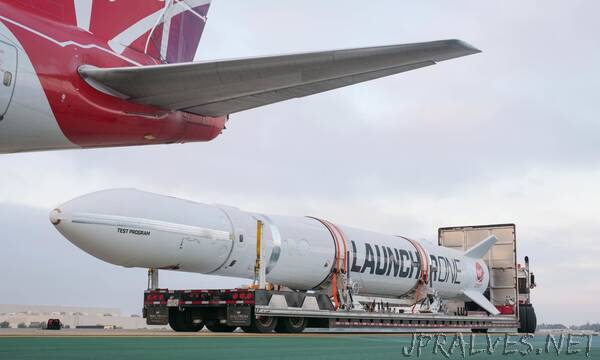
“Richard Branson’s Virgin Orbit has failed in its first test launch of a new rocket carried by a Boeing 747 and released over the Pacific Ocean off the coast of southern California.
The inaugural launch had appeared to be going well until moments after the rocket was dropped from beneath the left wing of the jumbo jet dubbed “Cosmic Girl”.
The launch failure is the latest setback for Branson, who recently announced he was selling $500m (£405m) worth of shares in his space travel business Virgin Galactic – a sister company of Orbit – to help prop up his ailing aviation and leisure businesses.
In its official Twitter commentary on the launch, Virgin Orbit said: “We’ve confirmed a clean release from the aircraft. However, the mission terminated shortly into the flight. Cosmic Girl and our flight crew are safe and returning to base.”
There was no immediate explanation for what went wrong with the rocket, which carried a test satellite.
Will Pomerantz, Virgin Orbit’s vice-president for special projects, had said during a pre-flight briefing on Saturday that about half of first rocket launches failed.
“History is not terribly kind, necessarily, to maiden flights,” he said.
The jumbo jet took off from Mojave air and space port in the desert north of Los Angeles and flew out just beyond the Channel Islands, where the drop occurred.
The rocket was supposed to fall for a few seconds before the first of its two stages ignited and propelled it down the coast toward the south pole for insertion of its demonstration payload into a low Earth orbit.
The 21 metre (70ft) LauncherOne rocket has been in development for five years.
The effect of the setback on the company was not immediately clear. It has six more rockets under construction.
A successful launch by Virgin Orbit would have marked a significant step in getting back on track after the coronavirus pandemic sent most employees home earlier this year while work spaces, procedures and mission control were adjusted.
Virgin Orbit is targeting the market for launching satellites ranging in size from toasters to household refrigerators.
Virgin Orbit chief executive Dan Hart said the time was right for the small satellite launch market.
Technological advancements had enabled satellites much smaller than traditional payloads to do “real work” in space, typically from low Earth orbit, and for markets ranging from commercial to national security, he said on Saturday.
While other companies were developing rockets for the small satellite market and builders of big rockets such as SpaceX could carry them into orbit in a ride-share arrangement with large satellites, Virgin Orbit’s air launch system based on the aviation industry’s 747 was intended to put a satellite up when and where a customer needed it, Hart said.
“We can fly to space from any place that can host a 747, which is almost any place.”
Virgin Orbit says it has dozens of missions planned for customers, including the US Space Force and the Royal Air Force, and it is working on plans for launches from the UK and Japan.
Virgin Orbit, based in Long Beach, California, began as a sister company of Virgin Galactic but has since separated.
The freeze in global travel is affecting a host of Virgin Group companies, including Virgin Atlantic, as well as its holidays, cruises and hotels businesses. The Virgin Australia airline has collapsed into administration and Virgin Atlantic is in severe financial difficulty. The carrier has announced plans to pull out of Gatwick airport and cut a third of jobs. The airline, in which Branson still holds a majority 51% stake, has been seeking emergency investment but is also seeking some form of state bailout to tide it over while planes remain grounded.
The 25m Virgin Galactic shares put up for sale account for just over a fifth of the billionaire’s stake in the space tourism business, which is preparing to begin flights carrying passengers into the lower reaches of space from southern New Mexico.”
